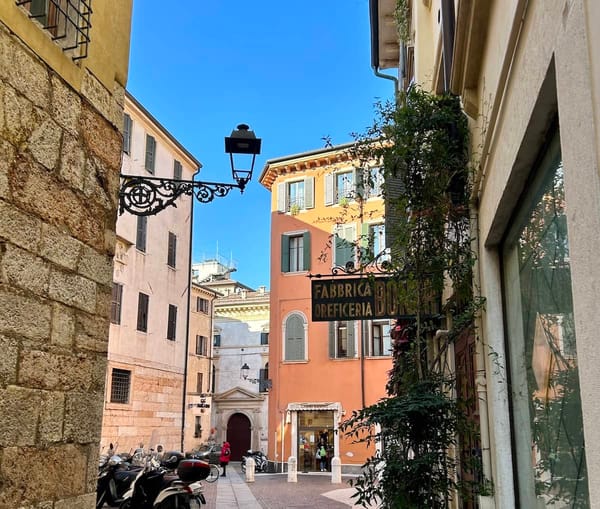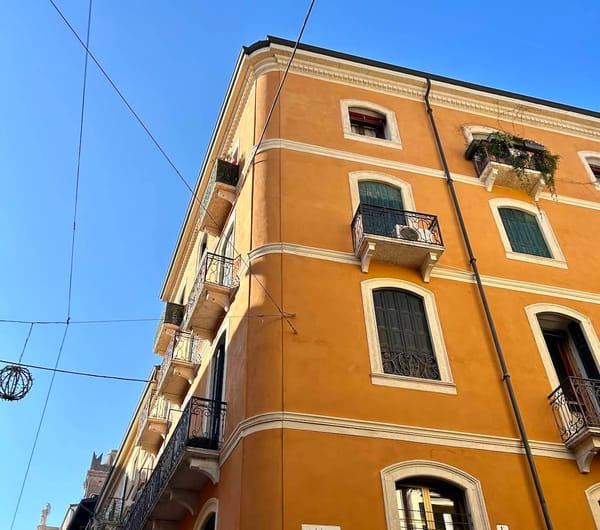Do You Need To Speak Italian To Live In Italy?
No, not at the beginning, but eventually!

- Do You Have to Learn Italian To Live in Italy?
- Where Will English Speakers Struggle the Most?
- Can You Work in Italy Without Knowing Italian?
Some of the links in this post are affiliate links. If you make a booking through these links, I may earn a small commission at no extra cost to you.
I moved to Milan in January 2022 with only an A2 (beginner) level of Italian, and I've faced very few challenges by not fluently speaking the language.
Despite the numerous jokes slung at Italians by their Northern European peers, I've found that the vast majority of young Italians understand English, as do many people in the older generation. Italians grow up consuming American media and encountering English words online the same way other Europeans do, and they also study English in school.
If you're moving to Italy without knowing Italian, don't worry—You'll struggle in certain situations, but you'll get by!
Do You Have to Learn Italian To Live in Italy?
You can absolutely live in Italy without speaking Italian, but learning the language will pay dividends.
As a 20-something immigrant who lives and works in Milan and primarily dates Italians and socializes with Italian people, I desperately need to learn the language.
Speaking English at work or with my friends and partners is no problem—I rarely find Italians in Milan who don't speak English. However, Italian is the raw language of this country, and there is nothing sweeter than being able to chat with your friends or lovers in their native tongue.
When Italians complete university around age twenty-five, many of them speak English at an upper-intermediate level, especially if they've participated in Erasmus. Thus, speaking English to accommodate you is not an insurmountable task, and they'll often do it without thinking.
This will be your Achilles heel.
Learning Italian is paramount if you want to truly immerse yourself in the local culture, and you won't reach fluency if you allow friends and acquaintances to switch to English whenever you're around. I've learned this the hard way!
Where Will English Speakers Struggle the Most?
If you don't speak Italian, consider moving to cities with a large number of international students and tourists, like Rome, Florence, Milan, and Bologna. Italians in these cities are in contact with English speakers every day, and many of the local services will offer information in both English and Italian.
When you veer off the beaten path, the percentage of Italians who speak English drops dramatically. Living in Milan has been a breeze without speaking fluent Italian, but when I travel through the Tuscan hillside or take the train south towards Naples, I make sure to refresh my language skills before leaving.
With apps like Google Translate and ChatGPT, and e-SIM cards that allow you to use your phone all over Italy for the price of an Aperol Spritz, it's possible to communicate with locals even if you don't speak fluently.

If you move to Italy without knowing the language, choosing to live in a smaller city is probably the best thing you can do to quickly up-skill your Italian. The key here is to work remotely or have a way to pay your bills that doesn't require a local job, because those will be difficult to find without fluency.
Can You Work in Italy Without Knowing Italian?
The Italian economy has been stagnant for decades. Over 17% of Italians under the age of thirty-five are unemployed, and due to low tuition costs, many of these young job seekers are highly educated.
I do not recommend moving to Italy without having a job lined up, and I strongly discourage moving here in search of a local job if you do not speak Italian.
Thankfully, with the advent of remote work and the ability to make money online, it's more than possible to secure an income before moving to Italy.
Italy boasts one of the largest economies in the world, and Northern Italy is home to numerous international companies and satellite offices for large brands and agencies. I found my own remote job on LinkedIn in late 2021 by applying for a position at an international company and requesting to be placed at their Milan office. Since we work primarily in English, my basic Italian skills were not a problem.
Alternative ways to make money online include writing, blogging, freelancing, and starting an online business. There are an unlimited number of ways to make money online these days, and doing so will be much easier (and likely better compensated) than trying to find a local Italian job without speaking Italian.
To read more about what it's like to work remotely in Italy, check out What Is It Like To Be A Digital Nomad In Italy?.
You do not need to speak Italian to live in Italy, but you do need it to thrive here.
Even if you snag a remote or English-speaking job and surround yourself with English-speaking friends and partners, you will miss out on the numerous cultural festivities, inside jokes, and enriching experiences that come with understanding the local language.
I have a good life here, but I know for certain that it'd be easier to build a network and forge new connections if I spoke Italian like an adult rather than like a toddler.
Learning Italian is also a very rewarding experience, and it will help you understand why Italians use certain phrases or nonstandard words in English!





